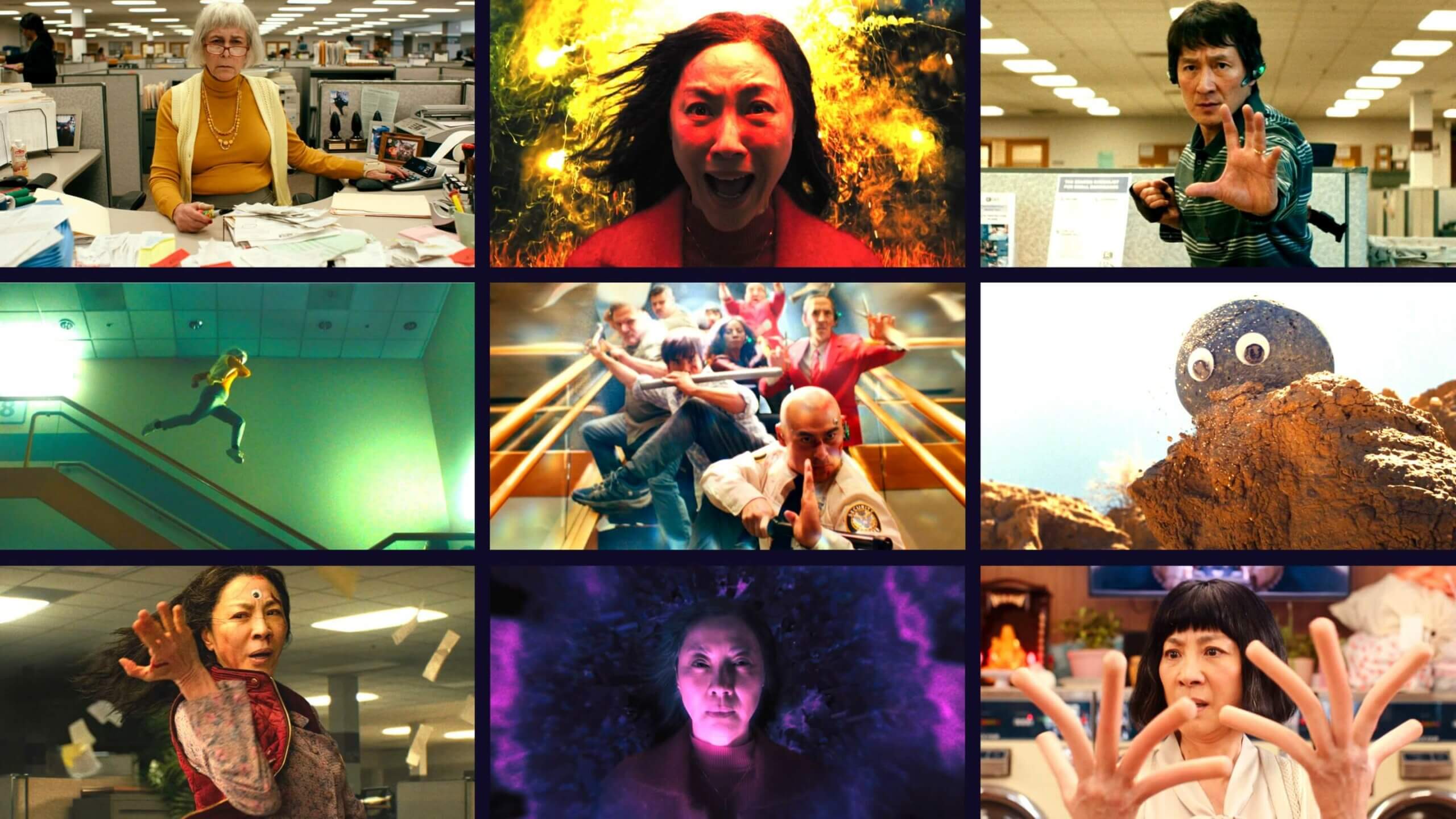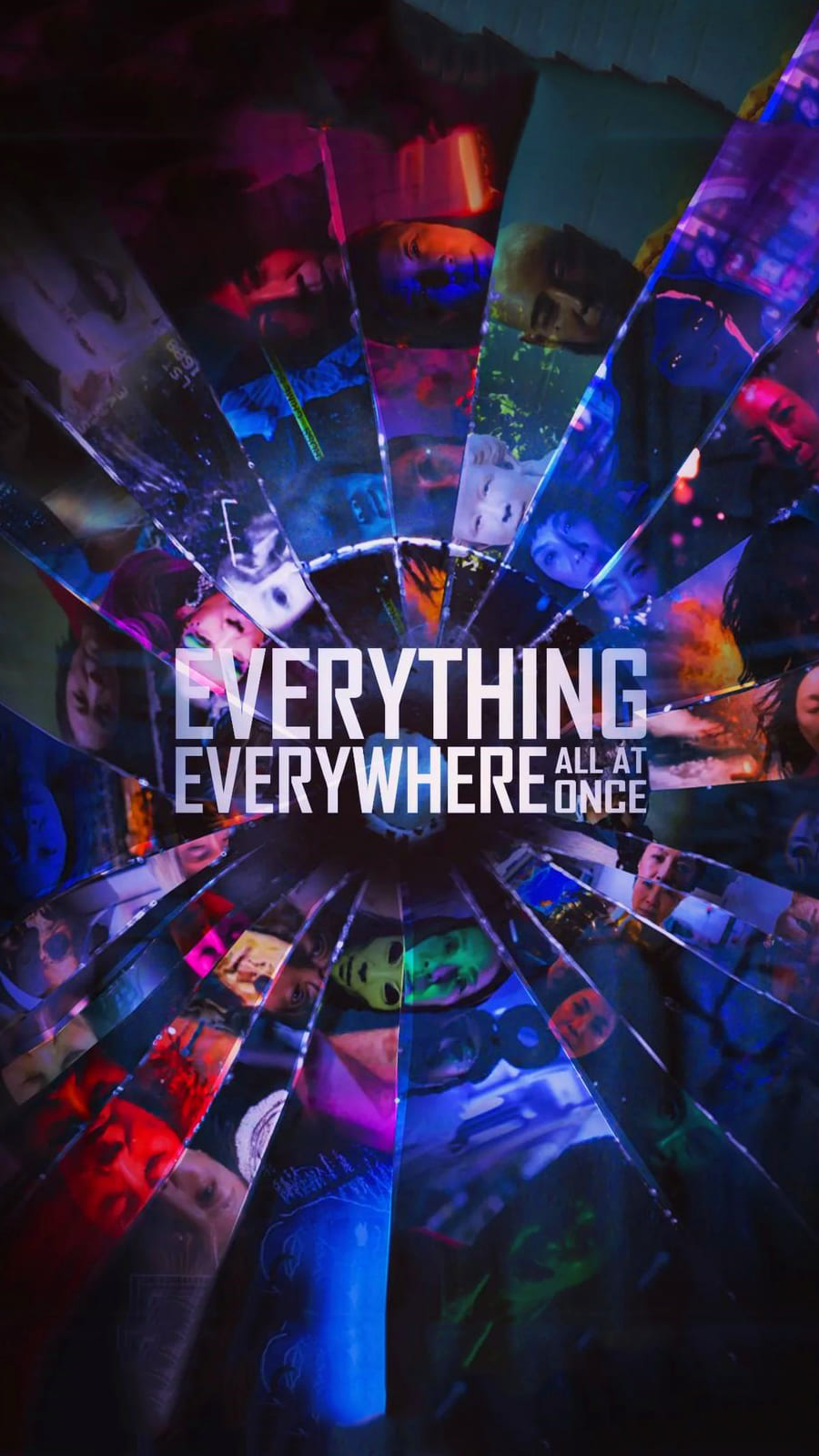You’ve probably heard the phrase "everything everywhere all at once" floating around, especially after the buzz from the movie of the same name. It's not just a catchy tagline—it’s a concept that’s taking the world by storm. Whether you’re a sci-fi enthusiast, a philosophy lover, or just someone who likes to dive into mind-bending ideas, this phrase has something for everyone. But what exactly does it mean? Let’s break it down and explore why it’s more than just a cool phrase.
When we talk about "everything everywhere all at once," we’re diving deep into the multiverse theory, quantum mechanics, and even existential questions that have been debated by scientists, philosophers, and filmmakers alike. It’s about understanding how our reality might be just one of many, and how every choice we make could lead to an infinite number of outcomes. Sounds wild, right?
Before we dive headfirst into the multiversal rabbit hole, let’s set the stage. This article isn’t just about explaining the concept—it’s about giving you the tools to think differently about your reality. By the end of this, you’ll have a clearer understanding of the science, the philosophy, and even the pop culture impact of "everything everywhere all at once." So buckle up, because we’re about to explore some pretty mind-blowing territory.
Read also:Meryl Streep And Don Gummer A 45year Marriage Journey
What Does "Everything Everywhere All at Once" Really Mean?
At its core, the phrase "everything everywhere all at once" is all about the multiverse theory. Imagine a reality where every decision you’ve ever made has created a parallel universe. In one universe, you might’ve become a rockstar. In another, you might’ve stayed in bed all day. The concept is both thrilling and terrifying—there’s no limit to what could exist out there.
Scientists like Max Tegmark and Michio Kaku have been exploring these ideas for years. Tegmark, for example, proposed the idea of the "Level I Multiverse," where there are infinite versions of our universe spread across unimaginable distances. Kaku, on the other hand, talks about the possibility of parallel dimensions coexisting with our own. It’s like a cosmic game of "choose your own adventure," but on a universal scale.
Here’s a quick breakdown of what the multiverse theory entails:
- Level I Multiverse: Infinite versions of our universe exist in different regions of space.
- Level II Multiverse: Different physical laws govern these universes, meaning they could be completely alien to us.
- Level III Multiverse: Every quantum event creates a new universe, leading to an infinite number of possibilities.
- Level IV Multiverse: The ultimate multiverse, where every mathematically possible universe exists.
It’s a lot to wrap your head around, but the beauty of the multiverse is that it challenges us to think beyond the boundaries of our everyday reality. And that’s where the fun begins.
How the Multiverse Theory Changed Our Understanding of Reality
For centuries, humanity has been fascinated by the idea of alternate realities. From ancient myths to modern science fiction, the concept of multiple worlds has captured our imagination. But it wasn’t until the advent of quantum mechanics that scientists began to take the multiverse seriously.
Quantum Mechanics and the Multiverse
Quantum mechanics is the branch of physics that deals with the smallest particles in the universe. One of the most famous experiments in quantum mechanics is the "double-slit experiment," which shows that particles can exist in multiple states simultaneously until they’re observed. This phenomenon, known as superposition, is the foundation of the multiverse theory.
Read also:Joy Behar And Ana Navarro Bond Over Dogs And Drinks While Hyped For The View Season 27
Think about it like this: every time you make a decision, the universe splits into two. In one version, you choose to go to the gym. In another, you decide to binge-watch Netflix instead. Both versions of you exist in separate universes, living out their own unique realities. It’s like a never-ending branching tree of possibilities.
The Philosophical Implications of "Everything Everywhere All at Once"
Beyond the scientific implications, the multiverse theory raises some profound philosophical questions. If every possible reality exists, what does that mean for free will? Are we truly in control of our destinies, or are we just one version of ourselves in an infinite sea of possibilities?
Existential Questions
Philosophers like David Lewis have explored the idea of "modal realism," which suggests that all possible worlds are just as real as our own. This means that the version of you reading this article right now is just as valid as the version of you who decided to skip it entirely. It’s a mind-blowing concept that forces us to rethink what it means to exist.
Another question that arises is the concept of identity. If there are infinite versions of you out there, who are you really? Are you the sum of all your choices, or is there something more fundamental that defines your essence? These are questions that have puzzled thinkers for centuries, and the multiverse theory only adds another layer of complexity to the debate.
The Cultural Impact of "Everything Everywhere All at Once"
Pop culture has always been a reflection of society’s collective consciousness, and the multiverse is no exception. From movies like "Spider-Man: Into the Spider-Verse" to TV shows like "Rick and Morty," the idea of alternate realities has become a staple of modern storytelling.
The Movie "Everything Everywhere All at Once"
Of course, we can’t talk about the cultural impact of the multiverse without mentioning the movie "Everything Everywhere All at Once." Directed by Daniel Kwan and Daniel Scheinert (collectively known as the Daniels), the film follows the story of Evelyn Wang, a Chinese-American immigrant struggling to keep her family’s laundromat afloat. Through a series of surreal and often hilarious events, Evelyn discovers that she’s connected to an infinite number of alternate versions of herself.
The movie is a masterclass in blending genres, combining elements of action, comedy, and drama to create a truly unique experience. It’s not just a story about alternate realities—it’s a story about identity, family, and the search for meaning in a chaotic universe.
Understanding the Science Behind the Multiverse
While the multiverse might sound like something out of a sci-fi novel, there’s actually a lot of science behind it. From string theory to the many-worlds interpretation, scientists have been exploring the possibility of alternate realities for decades.
String Theory and the Multiverse
String theory is one of the most promising candidates for explaining the multiverse. According to this theory, the fundamental building blocks of the universe aren’t particles, but tiny, vibrating strings. These strings can exist in multiple dimensions, leading to the possibility of parallel universes with different physical laws.
While string theory is still a work in progress, it offers a tantalizing glimpse into the nature of reality. If proven true, it could revolutionize our understanding of the universe and our place within it.
Exploring the Multiverse Through Literature
Literature has long been a medium for exploring the concept of alternate realities. From classic novels like "Alice’s Adventures in Wonderland" to modern works like "The Man in the High Castle," authors have been fascinated by the idea of multiple worlds.
Notable Works
- "Slaughterhouse-Five" by Kurt Vonnegut: This novel explores the concept of time as a non-linear construct, where all moments exist simultaneously.
- "The City & the City" by China Miéville: This book delves into the idea of two cities occupying the same physical space, but existing in separate realities.
- "The Lathe of Heaven" by Ursula K. Le Guin: This story examines the consequences of altering reality and the ethical dilemmas that arise from such actions.
These works not only entertain but also challenge readers to think critically about the nature of reality and the possibilities that exist beyond our everyday experience.
How the Multiverse Affects Our Daily Lives
While the multiverse might seem like a far-off concept, it has real-world implications that affect our daily lives. From quantum computing to artificial intelligence, the principles behind the multiverse are already being applied in cutting-edge technologies.
Quantum Computing
Quantum computing is one of the most exciting developments in the field of technology. Unlike traditional computers, which use bits to process information, quantum computers use qubits, which can exist in multiple states simultaneously. This allows them to perform calculations at speeds that are unimaginable with current technology.
As quantum computing continues to evolve, it has the potential to revolutionize industries ranging from healthcare to finance. It’s like having access to an infinite number of parallel processors, all working together to solve complex problems.
The Future of the Multiverse
As we continue to explore the multiverse, the possibilities are endless. From discovering new dimensions to communicating with alternate versions of ourselves, the future holds exciting opportunities for scientific discovery and philosophical exploration.
What Lies Ahead?
While we may never fully understand the multiverse, the journey of discovery is just as important as the destination. Every new discovery brings us closer to unraveling the mysteries of the universe and our place within it. And who knows? Maybe one day we’ll find a way to travel between universes and meet our alternate selves.
Conclusion: Embrace the Multiverse
In conclusion, "everything everywhere all at once" is more than just a phrase—it’s a concept that challenges us to think differently about reality. Whether you’re a scientist, a philosopher, or just someone who likes to explore big ideas, the multiverse offers endless possibilities for exploration and discovery.
So what can you do next? Share this article with your friends, dive deeper into the science behind the multiverse, or just sit back and ponder the infinite possibilities that exist out there. The choice is yours—or maybe it’s not. Either way, the multiverse is out there, waiting for you to explore it.
Table of Contents
- What Does "Everything Everywhere All at Once" Really Mean?
- How the Multiverse Theory Changed Our Understanding of Reality
- The Philosophical Implications of "Everything Everywhere All at Once"
- The Cultural Impact of "Everything Everywhere All at Once"
- Understanding the Science Behind the Multiverse
- Exploring the Multiverse Through Literature
- How the Multiverse Affects Our Daily Lives
- The Future of the Multiverse
- Conclusion: Embrace the Multiverse


